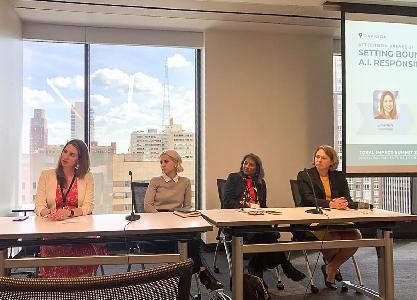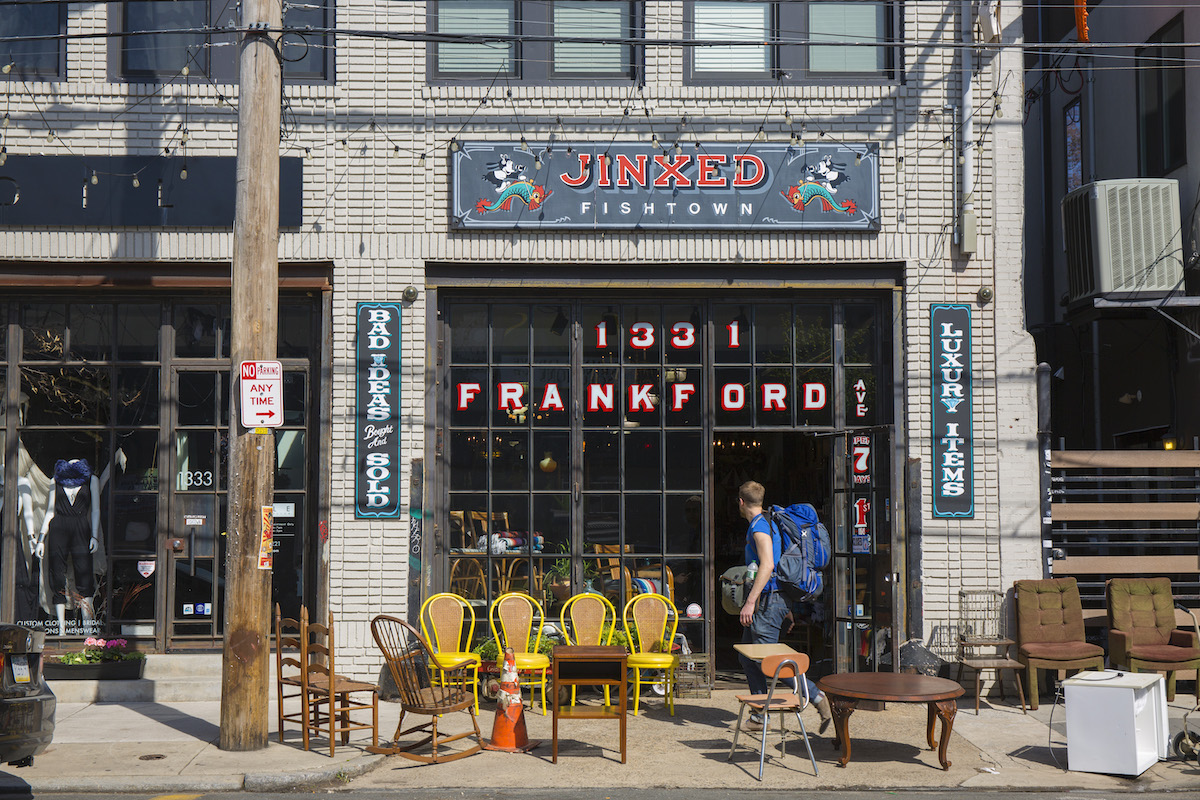In the third edition of the Economy League of Greater Philadelphia’s Leading Indicators, a weekly series on how the region’s economy is faring during the COVID-19 pandemic, the org takes a closer look at small businesses — which make up 99.7% of area companies.
That statistic is tied to to 2017 research, defining a small business as one that employs 500 or less people. The Small Business Administration uses the same statistic to define small businesses, and those are the businesses eligible for its Paycheck Protection Program (PPP) that went live last week and promises loans to cover two months of employees’ pay.
Out of that 99.7%, the Economy League report said, 53.7% had five employees or fewer. And while some industries have a higher concentration of small businesses, all industries — including construction, educational services, wholesale and retail trade, and real estate — were dominated by businesses with 20 employees or fewer.
So, if the majority of Philadelphia’s biz economy is small business, what’s the big picture of how they’ll be effected?
“We know that the median small business has 27 days of cash on hand, [and] this crisis will surely last a lot longer than 27 days,” Economy League Executive Director Jeff Hornstein told Technical.ly. “Businesses in the food economy, as we showed in our Good Eats report, have even less cash on hand. Many small businesses will go under for good unless they can get a cash infusion like the sort promised by PPP, a few months of payroll support.”
Philadelphia’s tech economy is also included in this. The report shows that the “information” sector is made up of majority small businesses, with 81% of companies having fewer than 20 employees, and only about 4% of companies with more than 100 employees. Companies with more than 1,000 employees, such as Comcast or SAP, make up only .1% of the information sector.
What protects tech companies in a time of a global pandemic, however, is the ability to work remotely, while other industries, like retail and food service, don’t fare as well.
Even the educational services and health care and social assistance that make up Philly’s eds and meds institutions have a relatively high concentrations of small businesses that often work in partnership with the region’s universities and hospitals, according to the report.
And per to data the report cites from the Pennsylvania Small Business Development Centers in 2013, there were about 27,000 small businesses in Philadelphia, employing the majority of the city’s workforce and producing more than $31 billion in payroll annually.
Wow. So what can we learn from this data? And how do we make a plan?
“The data we presented here were intended to evoke exactly the reaction we got from you — wow, this is a huge and important segment of our local economy, it’s fragile, and if we don’t want to be in a very bad place after the pandemic, we need to do more to protect it,” Hornstein said. “I think small business owners can use our data to inform their advocacy work with government, philanthropy and large institutions.”
The ED went on to say that the City of Philadelphia is doing its best with the limited resources it has, but “at the end of the day, only the feds have the resources to make a dent in this problem.”
In March, the City, along with PIDC, rolled out a $9 million COVID-19 Small Business Relief Fund — which was exhausted quickly, along with the state’s $61 million fund.
“The rollout of PPP showed that even $350 billion was a drop in the bucket,” Hornstein said.
The Economy League report does say that before the crisis, the economy was in a “historically robust growth trajectory,” so there’s hope that recovery from the pandemic could come quickly depending on how the U.S. reopens the economy.
“The longer the crisis and the subsequent lockdowns, the more likely it is that there will be mass small business failures; this will undoubtedly have severe long-term effects regionally and nationally,” the report said.
Read the reportP.S. GPLEX, the Economy League’s annual experiential networking series, is pivoting from its planned 2020 trip to Detroit to instead focus on Philadelphia. Details to come.
Join the conversation!
Find news, events, jobs and people who share your interests on Technical.ly's open community Slack

Philly daily roundup: What's next for ACP; Cheese dispensary tech; Philly Tech Week

Philly daily roundup: Minecraft in a Philly school; PTW kicks off; Tech and art happy hour

Philly daily roundup: Philly's top innovation leaders; City buildings go solar; PTW kicks off on Friday


